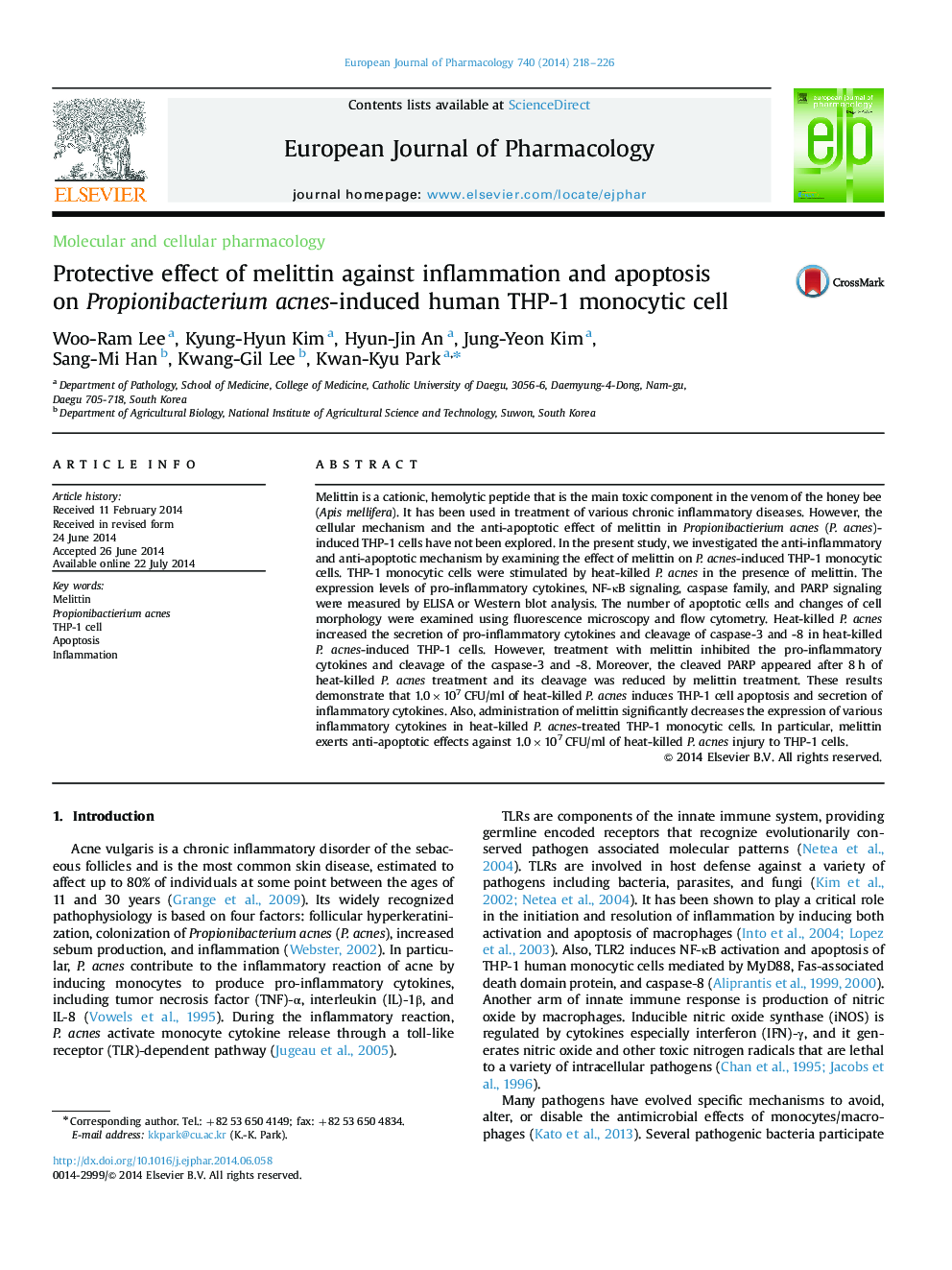| Article ID | Journal | Published Year | Pages | File Type |
|---|---|---|---|---|
| 2531609 | European Journal of Pharmacology | 2014 | 9 Pages |
Melittin is a cationic, hemolytic peptide that is the main toxic component in the venom of the honey bee (Apis mellifera). It has been used in treatment of various chronic inflammatory diseases. However, the cellular mechanism and the anti-apoptotic effect of melittin in Propionibactierium acnes (P. acnes)-induced THP-1 cells have not been explored. In the present study, we investigated the anti-inflammatory and anti-apoptotic mechanism by examining the effect of melittin on P. acnes-induced THP-1 monocytic cells. THP-1 monocytic cells were stimulated by heat-killed P. acnes in the presence of melittin. The expression levels of pro-inflammatory cytokines, NF-κB signaling, caspase family, and PARP signaling were measured by ELISA or Western blot analysis. The number of apoptotic cells and changes of cell morphology were examined using fluorescence microscopy and flow cytometry. Heat-killed P. acnes increased the secretion of pro-inflammatory cytokines and cleavage of caspase-3 and -8 in heat-killed P. acnes-induced THP-1 cells. However, treatment with melittin inhibited the pro-inflammatory cytokines and cleavage of the caspase-3 and -8. Moreover, the cleaved PARP appeared after 8 h of heat-killed P. acnes treatment and its cleavage was reduced by melittin treatment. These results demonstrate that 1.0×107 CFU/ml of heat-killed P. acnes induces THP-1 cell apoptosis and secretion of inflammatory cytokines. Also, administration of melittin significantly decreases the expression of various inflammatory cytokines in heat-killed P. acnes-treated THP-1 monocytic cells. In particular, melittin exerts anti-apoptotic effects against 1.0×107 CFU/ml of heat-killed P. acnes injury to THP-1 cells.
